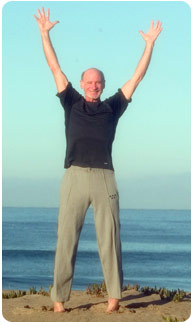 |
 |
|
 Frozen shoulders (adhesive capsulitis) and rotator cuff injuries are often treated surgically. In some cases that may be needed, however, in many cases, there is a much better way to effectively treat these conditions and restore normal function that often results in a greater range of motion prior to the injury. Frozen shoulders (adhesive capsulitis) and rotator cuff injuries are often treated surgically. In some cases that may be needed, however, in many cases, there is a much better way to effectively treat these conditions and restore normal function that often results in a greater range of motion prior to the injury.
The Shoulder Mobilization Therapy Seminar is hands-on workshop for chiropractors, physical therapists, massage therapists and other body therapists that have experience in treating patients with highly painful conditions. These acute conditions are an opportunity to fine-tune the sense of touch and to learn how to know what the patient is feeling at their painful parameters of motion. Most rotator cuff injuries are due to trauma or prior disuse of certain ranges of motion that are suddenly used in activities requiring extensive stretching. This can result in inflammation and micro or macro tearing/separation of connective tissues such as muscles, ligaments, tendons and/or the rotator cuff capsule. Severe major tears may need surgical repair, however, most common tissue separations, especially minor ones, that nonetheless develop very painful symptoms and severe restriction of motion, can effectively be treated with manual Shoulder Mobilization Techniques and simple remedial home exercise. Continued progress is made during a prescribed course of Shoulder Mobilization Therapy. Progressive improvement with greater range of motion with less pain provides encouragement and motivation to insure patient follow-through. Once the shoulder joint range of motion is normalized, the patient is discharged. A recommendation to continue the five-minute shoulder exercise routine on a daily basis. This short exercise routine maintains the progress made and keeps their connective tissues stretched and toned. This also helps to prevent future injuries from sudden over-stretching motions or traumatic strains. Questions about Shoulder Mobilization Therapy? Interested in the Shoulder Mobilization Therapy workshop? |
Home | About Sage | Contact Us | Site Map
site by forbynhawthorne design